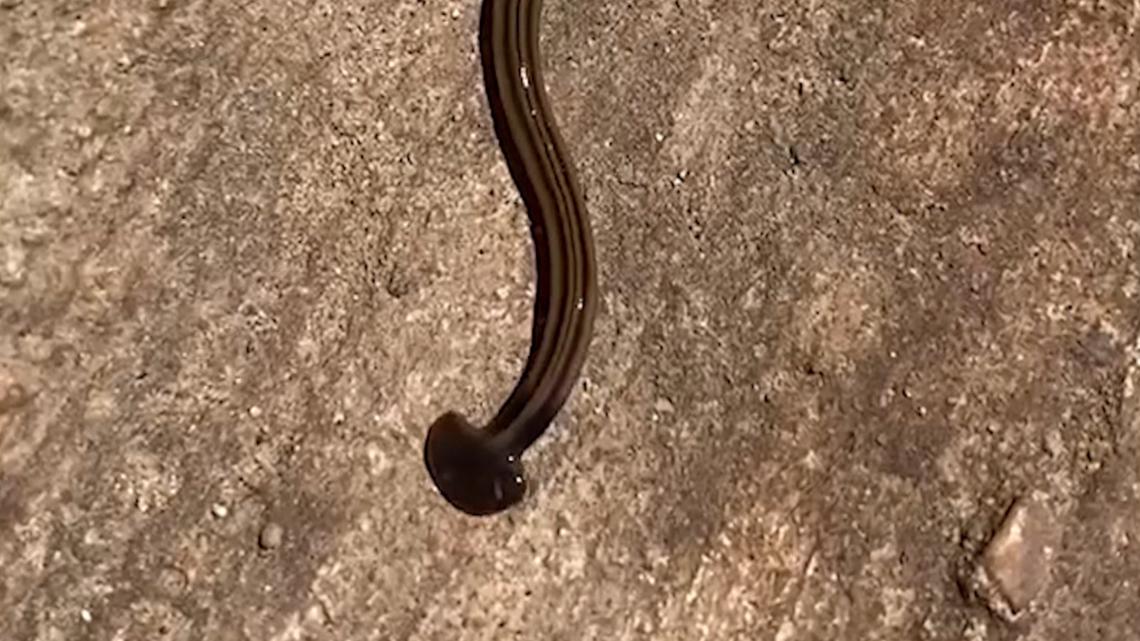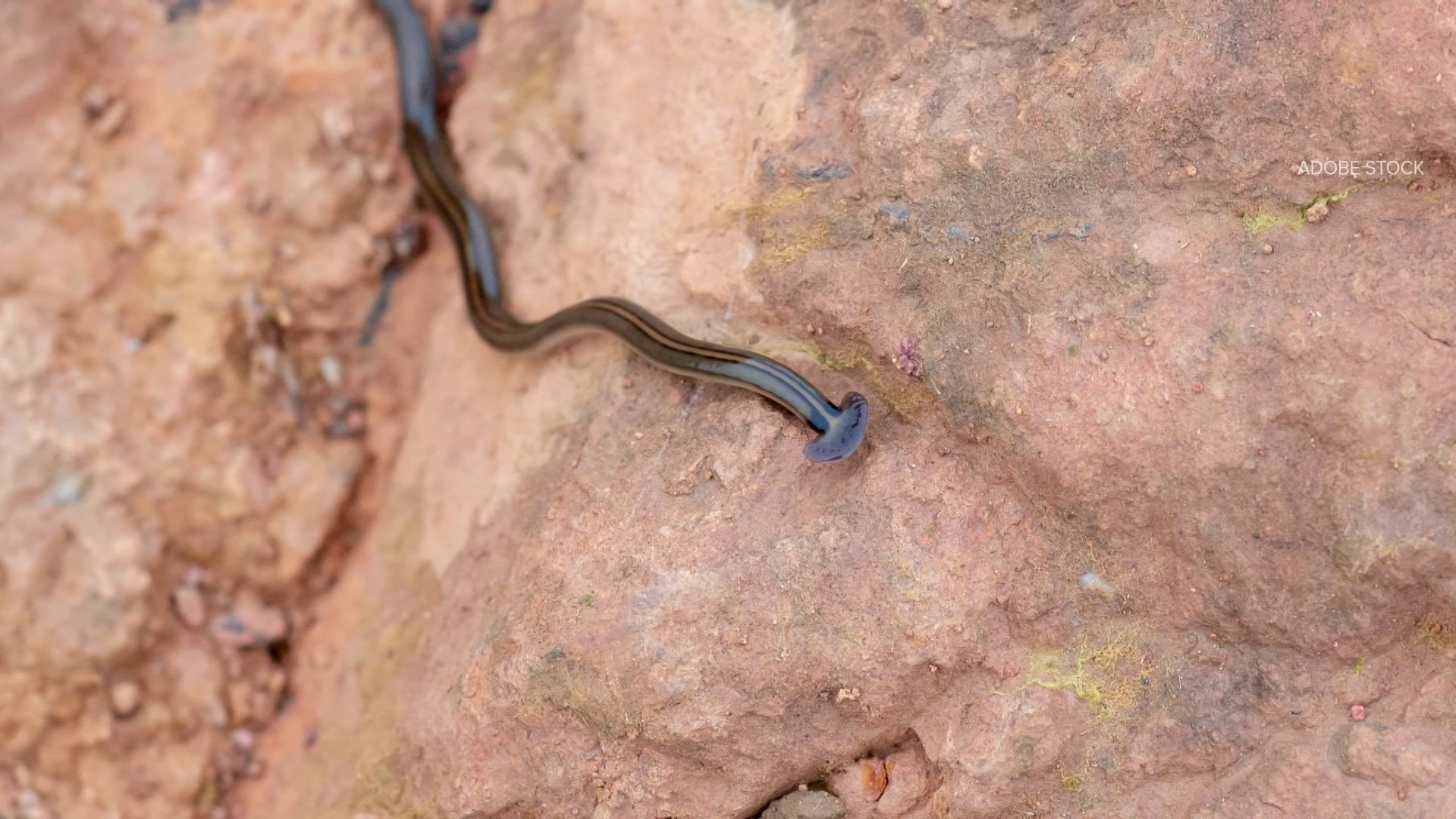LITTLE ROCK, Ark. — Hammerhead worms have invaded Arkansas and they're not friendly— experts have explained that the worms are actually toxic. While hammerhead worms aren't new to the state, this is the time of year when you might find them.
An agriculture expert with the University of Arkansas said their broad head sets them apart, and added that they aren't your ordinary earthworms.
"They have a toxin very similar to the puffer fish toxin," Dr. Vic Ford with the U of A Division of Agriculture said.
Ford said the hammerhead worms can be dangerous to humans, pets, and especially to earthworms.
"A lot of times they'll have stripes. But the head is the big thing. It's got like I call it a semicircle looks like something from a science fiction movie," Ford explained.
Even touching one without gloves comes with risks.
"If you handle one you can get the toxin absorbed through your skin. So that's a big negative," he added.
If you accidentally touch a hammerhead worm, symptoms typically include mild skin irritation. Experts advise that you wash your hands or use a disinfectant immediately after touching one.
If ingested by either pets or people, the worms can be poisonous, at which point you should seek immediate medical attention.
The worms are reported to be in at least 10 counties in Arkansas, but Ford said there could be more statewide.
"It can be found all the way from the north to the south, you know, from Missouri to Louisiana," he said.
Ford said they prefer the warmth, but usually, you won't find them in direct sunlight.
"They still need a lot of moisture. So they're under rocks or under flowerpots or in other things where it's moist," he described.
If you end up finding one, he said don't cut it up.
"It's going to make a gazillion other worms. So that's not what you want to do," he explained.
Instead, he recommended that people use salt or vinegar to get rid of them.
"I'm sure as people start watering their flowerpots and moisture accumulates under mulch and stuff, I think people will start seeing him again," he said.



